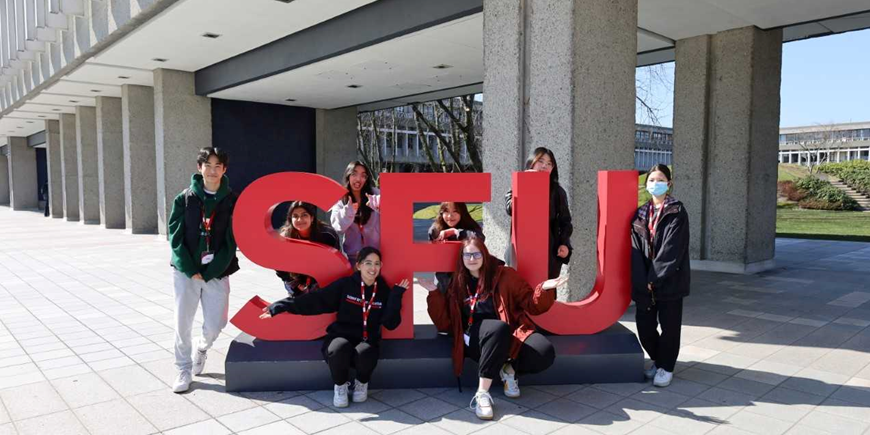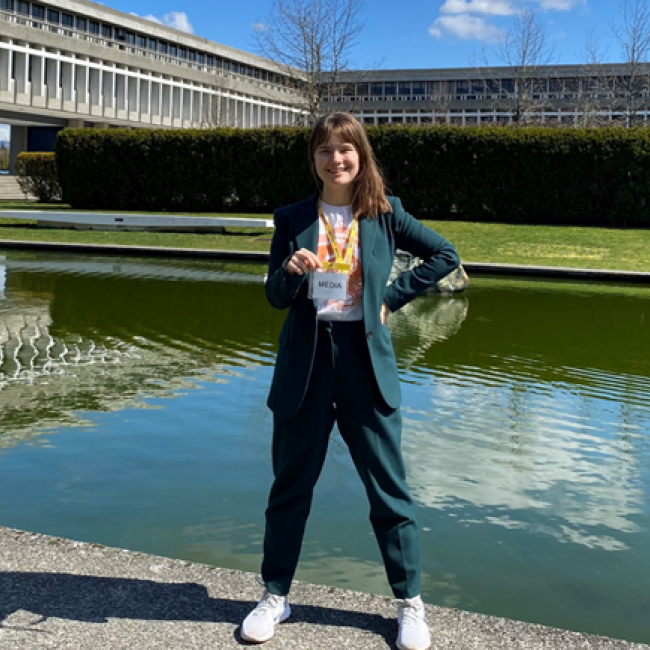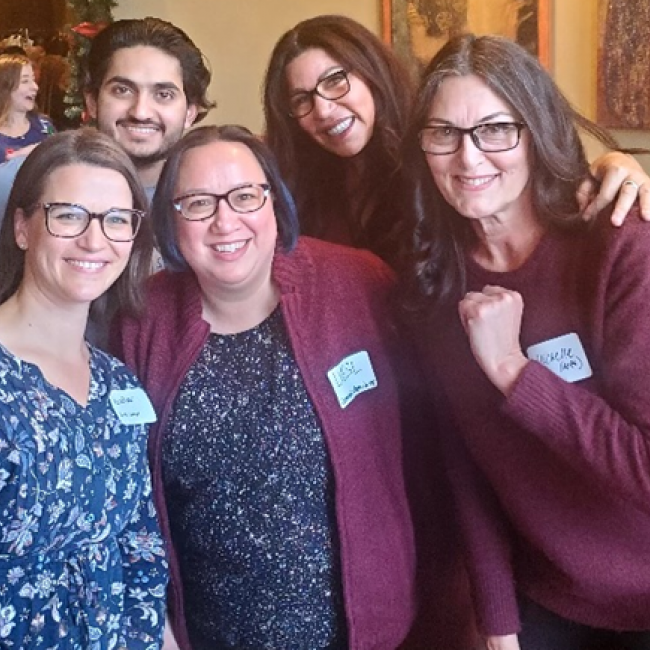
Coming into this Co-op position as an Outreach, Promotion, and Engagement Coordinator for SFU’s School of Communication, I was not expecting to gain any sort of event planning experience. Creating an event for our incoming students for Fall, was a brand-new concept that flourished this semester. I was more than happy to take on this responsibility and ended up acquiring a wealth of knowledge about what goes into the organization and coordination of an event. With this experience under my belt, I would like to share with you 3 event planning tips I picked up in this role.
This event was mainly targeting grade 12 students who had applied and received an offer of admission to SFU’s Communication program. I knew immediately that social media would be a great outlet to utilize for this specific demographic. The only issue was that most of these students were likely not following our socials. Thus, we decided the most direct way to invite them was through emails and calling campaign. Knowing your audience also means knowing when to contact them. Most high school students are at school until around 3:00pm, so we were sure to start calling after this time. Within my phone conversations and the voicemails I left, I was sure to promote our Instagram page where we had posted the Eventbrite links, as well as our TikTok, where we posted a directional video guiding the students through SFU’s complex Burnaby campus to successfully get to our School of Communication on event day. We also mentioned our Instagram and TikTok in our email invitations. Another promotional strategy we used in the calls and emails was to emphasize the fact that this event was completely free and that we were providing lunch at our new dining hall. Points like these are attractive to any target audience!
For this event, I was fortunate enough to have other colleagues involved and helping with preparations. But having help also means having to stay organized and keep track of who is doing what, so it does not turn into a ‘too many cooks in the kitchen’ scenario. Staying in constant communication with everyone involved was a helpful way for me to keep up with the tasks getting done. Another great organization tool when event planning is to keep lists. This is something I started but unfortunately was not persistent with. Keeping shared lists will help keep everyone involved informed and up to date, as well as aiding your own peace of mind. It is also important to stay physically organized. Part of the preparations for this event included creating SFU CMNS swag bags for all our attendees. Making sure I had a space to store the bags and lay out all the different items going in them, made assembling the bags and keeping track of how many we had or needed, much more straightforward.
Chances are, your event will not look exactly the way you envisioned it in your first draft. And that is okay! As your event goes from ideas on paper to attendees walking through the door, it will likely undergo numerous changes. It is important not to be too set on your original pitch because unexpected shifts are inevitable and often bring about even better plans. In my case, my original pitch for the itinerary and activities had to be reviewed by my supervisor and other colleagues, leading to many revisions. Once we had an official outline, I began the next step which was beginning to go through each activity on the itinerary and getting things prepared. Through this process, further changes were made due to the availability of people we wanted involved, accessibility to some of the materials or spaces we wanted, etc. We even made last minute changes during the event week! Having 3 event days meant we could see what was working, and what was not, then applying the necessary modifications for the following event day. There were also changes that we had to make on the spot, like taking the students on a different tour route due to weather.
Overall, event planning has definitely kept me on my toes and taught me the importance of being flexible, staying organized, and being aware of who your audience is. Of course, there are many other skills you will pick up along your event planning journey, but keeping these 3 tips in mind should give you a good foundation to start off with. I hope to have sparked a newfound interest in event planning and coordination for you. Good luck navigating the exciting world of events!




























